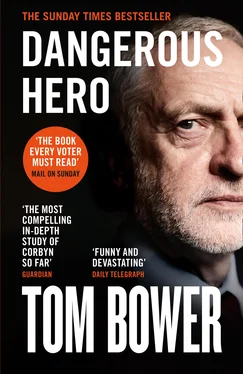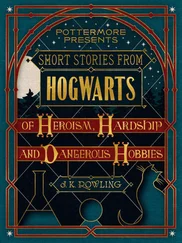Corbyn was shocked. He had even printed a leaflet announcing Hornsey as a Labour win. Every copy had to be dumped. Hugh Rossi, supported by traditional Labour voters changing their allegiance, secured by far his biggest majority – 4,037, up from 782 in October 1974. In endless post-mortems, Corbyn failed to draw the link between the strikes and how people had voted. Instead, he blamed Callaghan for refusing to destroy capitalism. By imposing a wage limit, the ‘non-believer’ had ‘betrayed the working class’. As a result, the party’s natural constituency had refused to vote Labour. ‘You’ll see,’ Corbyn told his acolytes. ‘The Tories will be out in four years after the people see the truth.’ The only immediate consequence was a court summons for Corbyn and Knight for breaking electoral law by overspending in the campaign by £49.
Corbyn rightly saw Thatcher’s pledge to reverse his community-style socialism and resurrect individualism and the market economy as a threat. Her instant dismissal of the government-appointed regulators of wages and prices, her introduction of laws to prevent trade unions organising wildcat strikes, the denationalisation of inter-city coaches, the abolition of exchange controls so that Britons were allowed to take more than £50 a year out of the country, and the sale of council homes all enraged him. Her promise to cut government expenditure despite inevitable unemployment was, in Corbyn’s world view, a declaration of war. He demanded ‘a massive campaign against the cuts’. Together with Ken Livingstone, Bernie Grant, Ted Knight and Keith Veness, the knights of the Socialist Campaign for Labour Victory, he plotted to reverse Labour’s political fortunes.
Haringey was one of the Tory government’s prime targets. Over the previous five years, the council had employed an additional thousand people and accumulated a £6 million deficit, yet its services were deteriorating. Now, Thatcher forbade all councils to increase their debts, and at the same time reduced their government grants. Most councils sought to improve their efficiency, but Corbyn protested that less money meant cuts in services. Without appreciating the irony, he told the Labour group, ‘We must positively defend and protect services which have already been badly hit.’ He took no responsibility for the uncollected rubbish, closed schools and unrepaired council homes. Instead, as the leader of the left, he launched a counter-attack, demanding that the Labour group defy the government by setting illegally high rates. ‘We’ll be personally surcharged,’ the moderates retorted, fearing that their privately-owned homes would be seized to pay the fines. Corbyn continued to demand the sacrifice, without revealing that his own flat had been bought with a GLC mortgage, and was therefore safe from repossession.
Robin Young, Labour’s new council leader, discovered that there was nothing gentle about Corbyn’s politics. ‘He was very ambitious but always careful not to get into trouble with the party,’ Young observed, echoing Mark Killingworth’s assessment, adding that ‘he always disguised his grabs for power’. Toby Harris also noticed that while Corbyn presented his arguments in calm and considered terms, he deliberately generated hostility towards moderates, while managing the inevitable disputes among the left about demands and tactics to present a united front. His success, observed Barbara Simon, the Hornsey party’s general secretary, owed much to his being ‘good-tempered, patient and hard-working’. But despite his qualities, Corbyn still led only a minority of councillors. Undeterred, in 1980 he sought to topple Young by standing against him in the Labour group’s leadership election. Once again, he employed a mild manner to disarm his opponents. ‘He never had stand-up rows,’ Killingworth noticed. ‘He was more cunning than that.’ Without being confrontational or physically threatening, Corbyn expressed his bitter intolerance of his ideological enemies in quiet tones. ‘He would propose motions about housing, rates or council employees in party meetings,’ recalled Killingworth, ‘with extreme demands but worded as if only the Tories could oppose his ideas. And he cleverly presented himself as seemingly detached while encouraging his supporters to threaten his opponents with no-confidence motions. Those meetings were really nasty.’ Nevertheless, on this occasion Young came out the victor.
The intensity of these political battles finally destroyed Corbyn’s marriage. Just before Christmas 1979, Chapman walked out of the family home. ‘He didn’t see it coming,’ said Toby Harris. Keith Veness agreed that Chapman ‘just gave up on him’. Nothing about Corbyn was an enigma. The monochrome was reality. As she packed her belongings, Corbyn told his wife, ‘You should read Simone de Beauvoir and never write your autobiography.’ Clearly, ever the non-reader, he had heard about de Beauvoir from someone, and had failed to understand the author’s philosophy. Women, de Beauvoir complained, were regarded as ‘the second sex’, and defined by their relationship to men. To rescue themselves, they should elevate themselves by exercising the same choice as men – precisely what Chapman had decided to do. Corbyn’s reference to her autobiography also jarred, because the flat was filled with boxes of leaflets, minutes of party meetings and newspaper cuttings – all kept, he explained, for when he decided ‘to write my memoirs’.
Corbyn was exhibiting all the contradictions of an unresolved personality, disconnected from the real world. His self-portrayal as a universal ‘do-gooder’ was at odds with his inability to care for his wife, or indeed any female companion. He was quite incapable of understanding why his marriage had collapsed. ‘He thought I left him on a feminist kick,’ recalled Chapman, ‘but it was because I wanted some fun. His lack of emotional awareness didn’t change. My emotional life as part of a relationship was forgotten.’ Finally she realised that his judgement at the beginning of their relationship that she was ‘the best of the best’ was because ‘I was the only woman who admired him and would put up with his political obsessions’. There was no parting gift. ‘I got neither the dog nor the cat,’ said Chapman, ‘because I moved into a single room in a West Indian’s flat. I had nowhere else to go.’ Nearly twenty years later, Corbyn invited Chapman for tea in the Commons. ‘You should lighten up,’ he advised her, convinced as usual that he had been in the right. If anyone lacked a sense of humour, thought Chapman, it was her former husband.
Shortly after his wife’s departure from Lausanne Road, Corbyn encouraged Keith Veness and another local party activist to join him in posting leaflets around a council estate and starting to canvass for the next local elections. At about 11.30 in the morning he announced, ‘We need to collect more leaflets,’ and drove them back to his flat. The three of them walked in to discover a naked woman on the bed. Diane Abbott, Corbyn proudly announced, was his new girlfriend. ‘He wanted us to see her in his bed,’ recalled Veness. ‘She was shocked when we entered.’ She had quickly wrapped herself in a duvet.
Abbott was the antithesis of a white, middle-class English woman. Born to Jamaican immigrants in 1953 (her father was a welder, her mother a nurse), she went to a grammar school in London, then to Cambridge. As the first female black student from a state school at Newnham College, she enjoyed a hectic social life. Articulate and determined, she became firmly hard left, committed to the class struggle. She would always blame ‘the system’ for the educational failure of black British children, never their parents or her own community. After graduating with a lower second in history she was hired by the Home Office, but swiftly moved to the National Council for Civil Liberties (NCCL) as a race relations officer. Belying the human rights group’s name, her fellow employees rummaged through her desk and found her private diary. One entry recorded her sexual fantasy of being manhandled by her lover Corbyn, ‘a bearded Fenian and NUPE national organiser’, and also descriptions of a motorbike holiday with him around France and a passionate romp in a Cotswold field, which she described as her ‘finest half-hour’.
Читать дальше










